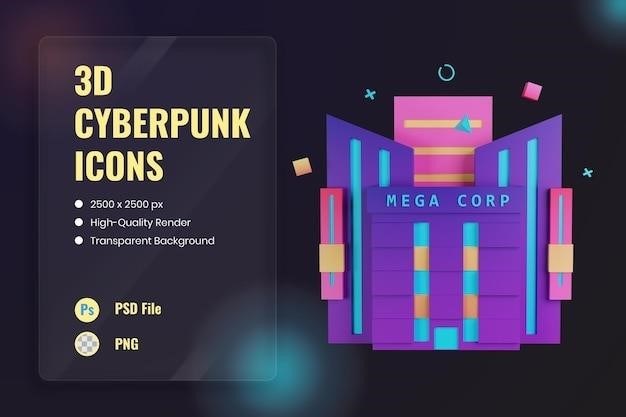ham license manual
Ham License Manual: A Comprehensive Guide
Embark on your journey into amateur radio with this comprehensive guide․ This resource provides the essential knowledge needed to navigate licensing, regulations, and best operating practices for ham radio enthusiasts․
Amateur radio, often called ham radio, offers a fascinating world of communication and experimentation․ To legally operate a ham radio in the United States, you need an amateur radio license issued by the Federal Communications Commission (FCC)․ This license grants you access to designated radio frequencies for communication, experimentation, and emergency services․
The licensing process involves passing an examination that tests your knowledge of radio theory, regulations, and operating procedures․ These exams are administered by Volunteer Examiners (VEs), licensed ham radio operators accredited by a Volunteer Examiner Coordinator (VEC)․ Obtaining a ham radio license is more budget-friendly than you think, making it accessible for most people․ Several study guides are available to help you prepare for the exams․
This manual will guide you through the process of obtaining and maintaining your ham radio license․ It will help you understand the different license classes, the required knowledge for each, and provide you resources to prepare effectively․

Understanding the Ham Radio License Structure
The FCC offers three license classes: Technician, General, and Amateur Extra․ Each class grants increasing privileges and requires a more comprehensive understanding of radio theory and regulations․ Let’s explore each license type․

Technician Class License
The Technician Class license is the entry point into the world of amateur radio, granting access to frequencies above 30 MHz․ This license allows operators to communicate locally and regionally, using VHF and UHF bands․
To obtain a Technician license, candidates must pass a 35-question multiple-choice exam covering basic regulations, operating procedures, and elementary radio theory․ No Morse code proficiency is required․
Technician licensees enjoy privileges such as voice, digital, and image communications․ They can experiment with various modes and technologies, contributing to community events and emergency communications․ The Technician license is a perfect starting point for exploring the fascinating aspects of ham radio, offering a gateway to both learning and contributing to the vibrant amateur radio community․ With minimal requirements and broad operational privileges, it’s easy to see why it is a common entry․
General Class License
The General Class license offers expanded privileges compared to the Technician Class, opening up significant portions of the HF (High Frequency) bands․ This allows operators to communicate across the country and around the world․

Achieving the General Class license requires passing a 35-question exam, building upon the knowledge from the Technician exam․ The test covers more advanced radio theory, regulations, and operating practices․ Passing this exam unlocks access to more frequencies․
General Class licensees can utilize SSB voice, CW (Morse code), and various digital modes on the HF bands․ This enables participation in DXing (long-distance communication), contesting, and emergency communications at greater distances․ This license is a popular choice for those looking to enhance their ham radio experience․ It offers a rewarding balance between knowledge requirements and operational capabilities, solidifying a ham’s place in the global community․
Amateur Extra Class License
The Amateur Extra Class license represents the pinnacle of achievement in amateur radio licensing․ Holding this license grants operators access to all available frequencies and modes, providing unparalleled operating privileges within the amateur radio service․
Earning the Amateur Extra Class license demands a comprehensive understanding of radio theory, regulations, and advanced operating practices․ The exam consists of 50 questions, testing knowledge beyond the General Class level, requiring dedicated study and preparation․
Amateur Extra licensees enjoy the freedom to experiment with advanced technologies, participate in cutting-edge research, and contribute to the advancement of the amateur radio art․ This license signifies a deep commitment to the hobby and a mastery of its technical aspects․ It’s for those who aspire to be leaders and innovators, pushing the boundaries of amateur radio communication․ Achieving this level distinguishes hams as experts․

Essential Study Resources for Ham Radio Exams
To successfully prepare for your ham radio exams, explore these essential study resources․ These tools will aid your journey towards achieving your desired amateur radio license and expanding your knowledge․
ARRL (American Radio Relay League) Resources
The American Radio Relay League (ARRL) stands as a cornerstone for ham radio enthusiasts, offering abundant resources to prepare for licensing exams․ ARRL provides comprehensive study guides, practice tests, and online courses tailored to each license class․ Their materials meticulously cover exam topics, ensuring thorough preparation․

ARRL’s website features an “Amateur Radio License Class” search, enabling individuals to locate local study groups and exam sessions․ The ARRL also publishes the “Ham Radio License Manual,” a widely respected textbook that provides a structured approach to learning the necessary concepts;
Furthermore, the ARRL offers practice exams that closely simulate the actual test environment, allowing candidates to assess their knowledge and identify areas for improvement․ These resources, combined with the ARRL’s commitment to education, make it a primary destination for aspiring ham radio operators․
No-Nonsense Study Guides
For a streamlined and efficient approach to ham radio exam preparation, “No-Nonsense Study Guides” offer a focused alternative․ These guides distill complex topics into easily digestible information, omitting extraneous details to concentrate on essential exam content․ They are available in various formats, including free PDFs, Kindle editions, paperbacks, and audiobooks․
These guides are crafted to make complex radio concepts approachable for everyone․ The “No-Nonsense” series covers Technician, General, and Amateur Extra class licenses․ Ham radio instructors can even order the print version of the No-Nonsense Technician and General Class License Study Guides at a discounted rate․
The No-Nonsense study guides are designed to help you study your way, whether you prefer quick reviews or deep understanding, making the learning process more efficient and effective․
HamStudy․org Resources
HamStudy․org provides a suite of free and affordable resources designed to help aspiring amateur radio operators earn their licenses or upgrade to the next level․ Funded by SignalStuff, HamStudy․org offers comprehensive study guides that make complex radio concepts approachable for everyone․
The platform integrates study materials with question drills, using the actual exam questions and answers․ It tracks your progress and focuses on your weak areas, drilling questions you get wrong more often than ones you get right․ HamStudy․org also offers flashcards, practice tests, and explanations for exam questions․
In addition to study tools, HamStudy․org provides a wealth of information about amateur radio, including frequently asked questions and study tips to help you prepare for your exam․ They also offer offline-capable mobile apps for both Android and iOS․

Effective Study Techniques and Strategies
Mastering ham radio requires strategic study․ Utilize practice tests and flashcards for effective memorization․ Embrace online courses for structured learning․ Focus diligently on your weaker areas to ensure comprehensive understanding․
Practice Tests and Flashcards
Practice tests are invaluable tools in ham radio exam preparation․ They simulate the actual testing environment, helping you familiarize yourself with the question format and time constraints․ Numerous online platforms offer free and paid practice tests tailored to each license class: Technician, General, and Amateur Extra․ These tests often provide detailed explanations for correct and incorrect answers, enabling targeted learning․
Flashcards are another effective method for memorizing key concepts, regulations, and technical terms․ Digital flashcards, available through apps and websites, offer the convenience of studying on the go․ Many resources provide pre-made flashcard sets aligned with the official exam question pools․ Creating your own flashcards allows for personalized learning, focusing on areas where you need the most reinforcement․ Consistent use of practice tests and flashcards significantly enhances your retention and boosts your confidence for the exam․
Utilizing Online Courses
Online courses offer a structured and comprehensive approach to ham radio license preparation․ These courses typically cover all the topics outlined in the exam syllabus, presenting the information in an organized and easy-to-understand manner․ Many online courses incorporate interactive elements such as videos, quizzes, and simulations to enhance learning․ Instructors are often experienced ham radio operators who can provide valuable insights and answer your questions․
Some online courses integrate study materials with question drills, using the actual exam questions and answers․ These courses track your progress and focus on your weak areas, drilling questions you get wrong more often than ones you get right․ Popular platforms include Ham Radio Prep, ARRL, and others, each offering unique features and pricing options․ Carefully evaluate different courses to find one that suits your learning style and budget․
Focusing on Weak Areas
Effective ham radio exam preparation involves identifying and addressing your weak areas․ Begin by taking practice tests to pinpoint the topics where you consistently struggle․ Once identified, dedicate extra study time to these specific areas; Use resources like study guides, flashcards, and online explanations to reinforce your understanding․
Consider breaking down complex topics into smaller, more manageable chunks․ Seek out additional explanations or alternative perspectives from different sources, such as online forums or study groups․ Don’t hesitate to ask for help from experienced ham radio operators or instructors․ Regularly review your progress by taking practice tests and tracking your improvement․ By focusing on your weak areas, you can significantly increase your chances of success on the ham radio exam․

Finding and Preparing for Ham Radio Exams
Locating and preparing for ham radio exams involves identifying exam sessions, understanding VE sessions, and mastering the exam format․ Thorough preparation ensures confidence and success on exam day․
Locating Exam Sessions
Finding a convenient ham radio exam session is a crucial step toward obtaining your license․ The ARRL’s Exam Session Search tool is an excellent resource for locating nearby sessions․ This online tool allows you to search by location and date, providing details about upcoming exams․ Alternatively, the Laurel VEC also offers exams, often at no cost․ Check local amateur radio clubs for scheduled sessions․
Many clubs host regular exam opportunities․ Contacting these clubs directly can provide specific dates, times, and locations․ Online forums and communities dedicated to amateur radio are also valuable sources of information․ These platforms often have threads or announcements about upcoming exam sessions in various regions․
Remember to register in advance and understand the requirements for identification and any fees associated with the exam․

Volunteer Examiner (VE) Sessions
Volunteer Examiner (VE) sessions are the cornerstone of the amateur radio licensing process․ These sessions are administered by accredited Volunteer Examiners who are themselves licensed ham radio operators․ VEs play a vital role in ensuring the integrity and fairness of the exam process․ To become a VE, one must generally hold a General Class license or higher․
VE sessions provide a structured and supportive environment for aspiring hams to demonstrate their knowledge and skills․ These sessions typically involve a team of VEs overseeing the exam administration, grading, and paperwork․ The ARRL and other Volunteer Examiner Coordinators (VECs) accredit VE teams․
VE sessions are often hosted by local amateur radio clubs or organizations․ These sessions are conducted in accordance with FCC regulations and guidelines․ The VEs ensure that all examinees are treated fairly and that the exam is administered properly․ They also provide guidance and support to examinees throughout the process․

Maintaining and Upgrading Your Ham Radio License
Once you’ve earned your ham radio license, the journey doesn’t end there․ Maintaining and upgrading your license are crucial aspects of being a responsible and engaged member of the amateur radio community․ Keeping your license active involves adhering to FCC regulations and ensuring your contact information is up-to-date․ Regularly participate in amateur radio activities to hone your skills and knowledge․
Upgrading to a higher license class opens up new opportunities and privileges within the ham radio world․ Each upgrade expands your operating frequencies and authorized modes․ Advancing enhances your technical expertise and allows you to contribute more to the hobby․
Consider pursuing the General or Amateur Extra Class licenses to unlock the full potential of amateur radio․ Continuously learning and improving your skills is key to enjoying a fulfilling experience․ Embracing lifelong learning enriches both your personal growth and the amateur radio community․


